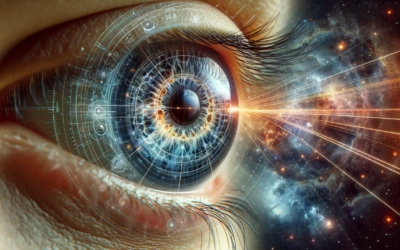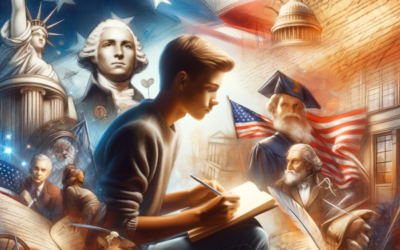The year is 2045, and the world is a vastly different place than it was just a few decades ago. The consequences of unchecked misinformation have become painfully clear. Conspiracy theories and fake news are no longer just fringe beliefs held by a few individuals, but rather a pervasive force that shapes entire societies. With the collapse of trust in traditional sources of information, people have retreated into echo chambers where they consume only the news that confirms their pre-existing beliefs. The consequences of this have been catastrophic. Climate change has gone unchecked, diseases once thought to be eradicated have returned, and political systems have crumbled under the weight of propaganda and misinformation.
In this world, the ability to discern what is true and what is false has become an essential skill, one that many people lack. The lack of critical thinking skills and the inability to evaluate evidence has made it almost impossible to arrive at a consensus on important issues. The very concept of objective truth has been eroded, replaced by a fragmented and subjective reality that is shaped by personal beliefs and biases.
But how did we get here? How did we let the truth slip away from us?
The answer is not simple, but it begins with the erosion of trust in institutions and traditional sources of information. The rise of social media and the proliferation of fake news have made it difficult for people to differentiate between reliable and unreliable sources. Confirmation bias has exacerbated this problem, reinforcing pre-existing beliefs and making it hard to accept evidence that contradicts them.
In this environment, critical thinking and evidence-based reasoning are more crucial than ever before. Without the ability to evaluate evidence and distinguish between fact and fiction, we are doomed to a world where truth is subjective and facts are whatever we want them to be. It is therefore imperative that we cultivate these skills, both individually and collectively, in order to defend the truth and build a more informed, just, and equitable society.
In this article, we will explore the importance of critical thinking and evidence-based reasoning in determining what is true and what is false. We will examine some of the contentious issues that are currently under debate and show how critical thinking can help us arrive at a more accurate understanding of these issues. We will also look at some of the practical ways in which we can cultivate critical thinking skills, both in ourselves and in future generations.
One of the most contentious issues of our time is climate change, which has provoked polarized debates that are at times impassioned and divisive. But is climate change real or a hoax? This question may seem to have a simple, binary answer, but it is far more complex than that. There is an overwhelming body of evidence from various scientific disciplines that corroborate the existence of climate change and its attendant catastrophic ramifications. However, there are those who deny climate change’s existence and dismiss this evidence as a fabrication. So, how can one determine the truth in this matter?
The answer lies in critical thinking and evidence-based reasoning. We need to learn how to discern the reliability of sources, and to evaluate evidence in order to differentiate fact from fiction. The scientific method is a pertinent tool for this purpose. Scientists, through experimentation and peer review, arrive at verifiable knowledge by testing hypotheses.
One example of the scientific method providing overwhelming evidence for a phenomenon that even dissenters cannot deny is the link between smoking and lung cancer. While it is now widely accepted that smoking is a leading cause of lung cancer, this was not always the case. In the early 20th century, smoking was not considered a significant health risk and was even recommended by doctors for its supposed health benefits.
However, in the 1950s, a growing body of scientific research began to suggest a link between smoking and lung cancer. Researchers conducted experiments on animals and humans, analyzed statistical data, and conducted epidemiological studies to arrive at their conclusions. Through the process of peer review and replication of studies, this evidence was gradually confirmed and became widely accepted.
Despite this, the tobacco industry and its allies continued to deny the link between smoking and lung cancer, employing their own scientists to produce studies that contradicted the overwhelming body of evidence. However, as the scientific evidence continued to mount, the public became increasingly aware of the dangers of smoking and began to demand action. In 1964, the U.S. Surgeon General’s report officially recognized the link between smoking and lung cancer, and tobacco advertising was eventually banned in many countries.
This example illustrates how the scientific method can provide us with an accurate understanding of the world, even in the face of powerful opposition. Through the rigorous process of experimentation, peer review, and replication of studies, scientists can arrive at verifiable knowledge that can inform public policy decisions and improve public health. While dissenters may continue to deny the evidence, the scientific consensus that emerges from this process is difficult to dispute.
The need for critical thinking is not limited to scientists, though. It is essential that we all learn how to evaluate evidence and distinguish between reliable and unreliable sources. This is particularly important when it comes to public policy decisions, which have significant real-world consequences. Decisions regarding climate change policy, for instance, will have ramifications not only for our present but for future generations as well. It is, therefore, imperative that we base such decisions on reliable evidence rather than ideology or political expediency.
In the current landscape, there are many examples of contentious issues where it is difficult to discern the truth. For instance, the safety and efficacy of vaccines have been subject to extensive debate. While the scientific consensus supports the safety and efficacy of vaccines, there are still those who deny their efficacy and safety, which has led to a rise in preventable diseases in some areas. The debate over the safety of genetically modified foods (GMOs) is another example of a contentious issue where the evidence is often misinterpreted or disregarded, leading to significant public confusion and concern.
Another example is the debate over the use of alternative medicines. While some alternative medicines have been shown to have some efficacy, many have not been subject to rigorous scientific testing and may have dangerous side effects or interactions with prescription medications. Despite this, many people still rely on these treatments, often without consulting a doctor or trained medical professional.
Moreover, issues related to history and identity can also be polarizing, such as the debate over the Confederate flag in the United States. While some argue that the flag is a symbol of heritage, others argue that it represents slavery and oppression. The interpretation of history, in general, is also subject to political agendas and biases, which can make it challenging to discern the truth.
In all of these examples, the importance of critical thinking and evidence-based reasoning cannot be overstated. By carefully evaluating the evidence and seeking out reliable sources of information, we can arrive at a more accurate understanding of the issues at hand. This requires the development of critical thinking skills and a willingness to question our own beliefs and assumptions. It is essential that we incorporate these skills into our education system, teaching students how to evaluate evidence, think critically, and analyze complex issues. It is also important that we encourage individuals to question their own beliefs and to seek out reliable sources of information.
Finally, we need greater transparency and accountability in media and public discourse. It is crucial that we hold politicians and media outlets accountable for spreading misinformation and fake news. In this regard, we need to foster a culture of fact-checking and evidence-based reasoning.
The truth is under attack in many areas of modern life, including contentious issues related to science, health, and history. By promoting critical thinking and evidence-based reasoning, we can defend the truth and make informed decisions that have a positive impact on our lives and the world around us. We all have a role to play in promoting these skills, and by doing so, we can ensure that truth prevails. We need to be able to evaluate evidence, distinguish between reliable and unreliable sources, and think critically to arrive at a more accurate understanding of the world. This is an urgent matter that demands our attention, and by cultivating these skills, we can build a more informed, just, and equitable society.






